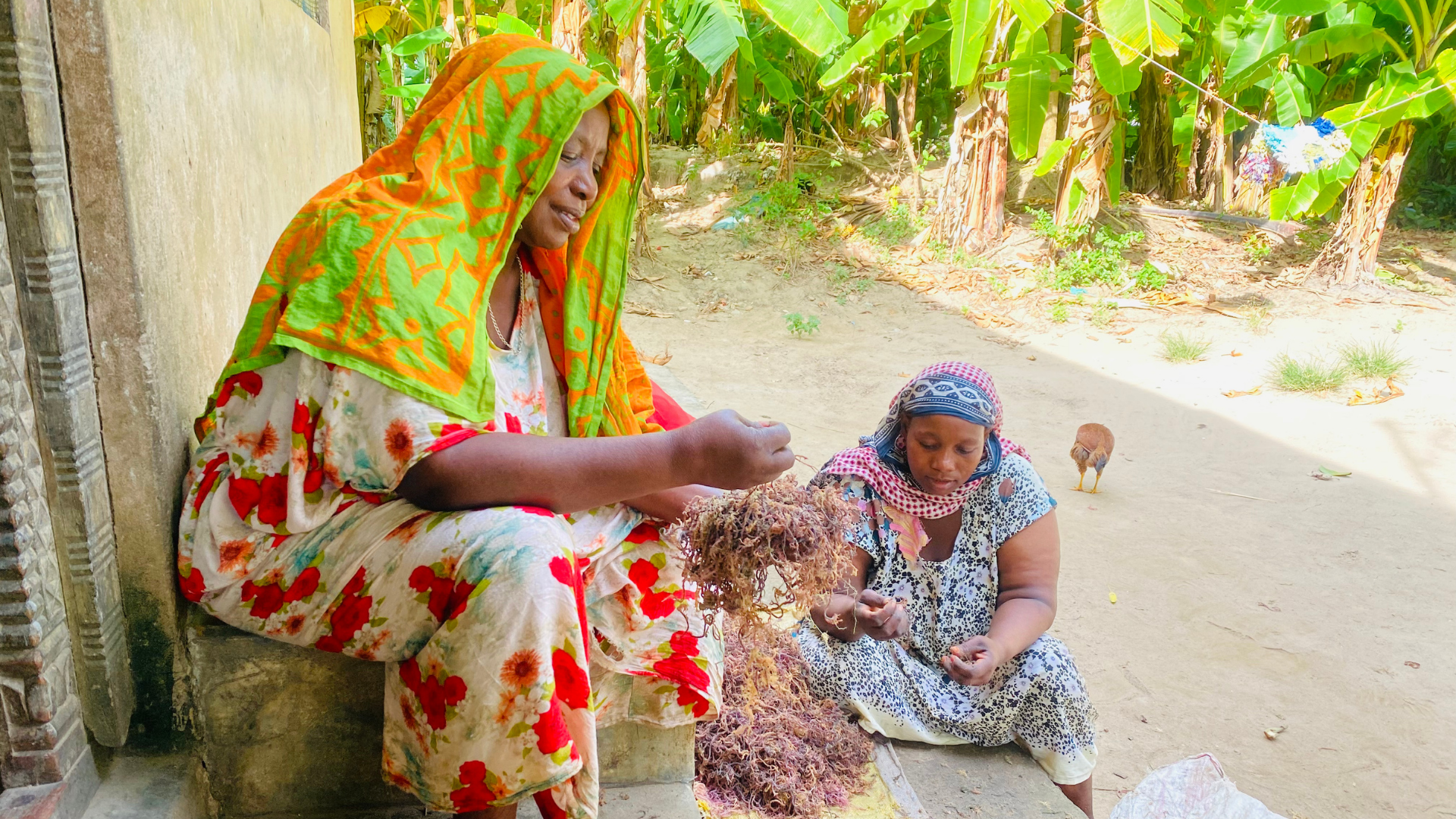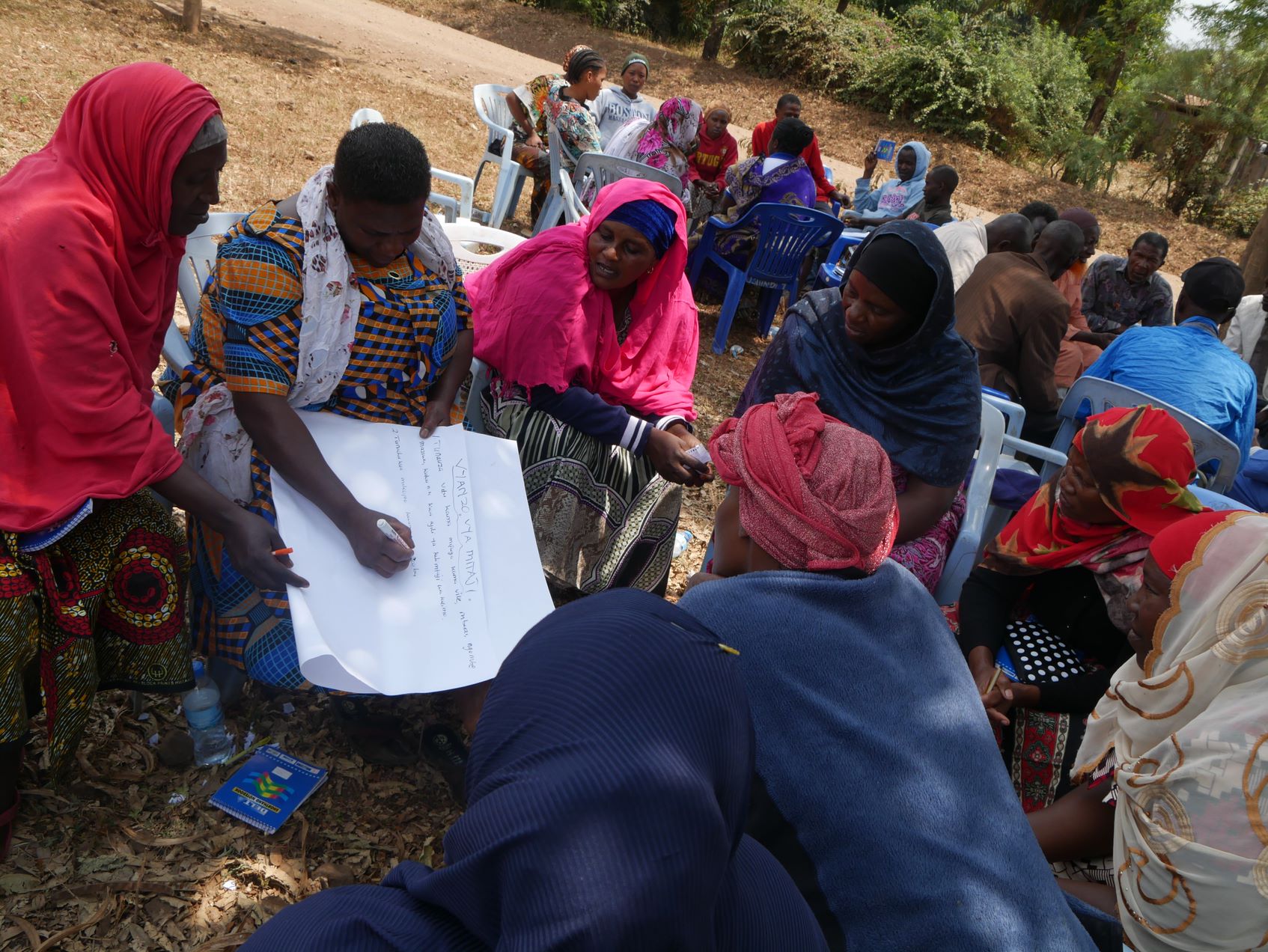Water Resources

Strengthening the Contribution of Local Actors for a Climate Resilient Society in Zanzibar (Phase II)
This project, implemented by Climate Action Network Tanzania (CAN Tanzania), is a follow-up on the achievements and lessons learned from its pilot phase in Chuini, Zanzibar. The project responds to the identified vulnerability of Zanzibar’s communities, whose livelihoods in agriculture, fisheries, and tourism are highly climate-sensitive, by empowering local actors to lead and participate in climate adaptation and resilience-building efforts.
In its previous phase, the project successfully enhanced preliminary climate adaptation knowledge, piloted participatory risk assessments, supported policy review processes, trained journalists on effective climate reporting, and strengthened community-led actions such as mangrove restoration and sustainable livelihood initiatives like beekeeping.
In this phase, we aim to deepen these achievements by expanding the project location to Chuini and Mtakuja Shehia to enhance stakeholder engagement, strengthen local governance, and scale up locally led adaptation strategies. It incorporates comprehensive training and capacity-building programs, supports the integration of climate resilience into local and national policy frameworks, and promotes income-generating, environmentally friendly activities. The project also emphasizes robust monitoring and evaluation, advocacy for inclusive policy development, and sustainability planning to ensure that climate resilience becomes embedded in Zanzibar’s systems and structures for the long term.

Enhancing the role of Solar Irrigation for Poverty Reduction Near Mt. Kilimanjaro
The project for enhancing the role of solar irrigation for poverty reduction is aiming at enhancing the adoption of solar-powered irrigation technology by the smallholder farmers in the three target project areas, leading to improved and diversified food production, enhanced climate resilience and overall social well-being, enhanced environmental conservation and climate change resilience.
Due to climate change water stresses in most tanzania communities increased. Research show that the effect of severe droughts in Hai District impact agriculture production and food security significantly.Traditionally for irrigation water from river diversions or natural springs were used. This secured the food security and income to the majority of farmers in Hai District. However, the situation has changed in recent year so farmers are no longer able to rely on traditional irrigation techniques. Due to the change of rainfall patterns streams and rivers does not flow anymore predictable continuously throughout the year.This project addresses theirfore the need for a sustainable all-year-round irrigation. The project is implemented in the three villages of Ngosero, Kilima Mbogo and Mkombozi which are located in the dry lowland plains of the southern part of Mt. Kilimanjaro.
Hydrogeological studies, conducted in the initial phase of the project showed that enough groundwater is accessible by drilling boreholes to set-up solar-power irrigation schemes.
To ensure the sustainability of the project farmers are trained in climate smart farming and agribusiness.By this approach farmes build the capacity to utilize the solar irrigation to change their farming from rain-fed to all-year-round and using the surplus of the harvest to finance maintenance cost and reduce poverty. Based on these interventions with an holistic human-centered and participatory approach, it is expected that smallholders in will get resilient and capable of coping with present and projected shocks from climate change.
Funded by the Germany Government through
the Ministry for Economic Cooperation and Development (BMZ), this 2-year
project aims at enabling the poor, marginalized and vulnerable smallholder
farmers in three villages (Ngosero, Kilima Mbogo, and Mkombozi) located in the
dry lowland plains of the southern part of Mt. Kilimanjaro to overcome the
pervasive challenges of poverty, food insecurity. It also seeks to address gender
inequality and water use conflicts caused by lack of access to reliable and
affordable water supply for irrigation purposes as compounded by the growing
impacts of climate change.
In this regard, 2021 was the first year of
implementation for this project. Accordingly, the project team worked diligently
to initiate the various project activities in line with the project design and
respective work plan. Key activities implemented and achievements are presented
below:
i. Project launch: Project was successfully launched in February 2021
marking official commencement of implementation. This intervention involved
mobilization of all key stakeholders to ensure their buy-in and ownership. This
phase also involved confirmation of project management committees namely
Project Steering Committee and Project Implementation Committee as well as
validation of farmers and water user groups.
ii.
Baseline studies: These studies
were conducted between February and May 2021 in order to establish accurate
benchmarks against which to measure progress. The studies also helped to
understand key gaps, needs, and entry points (opportunities) for enhancing the
implementation of the project. Specifically, the studies include socio-economic
survey, Environmental impact Assessment and hydrogeological survey.
iii.
Drilling of boreholes: This
important component of the project commenced in October 2021 after completion
of hydrogeological studies and securing the drilling permits from the
respective Pangani Basin Water Board. By end of December 2021, drilling of two
of the three boreholes was completed in two villages of Mkombozi and
Kilimambogo, pending installation of solar powered water pumps to pump water
for irrigation.
iv.
Training of communities on
agronomy and climate smart agriculture. In preparation for irrigation, the
initial training to orient and sensitize communities
On this basis the
next steps include installation of solar power system to operationalized
boreholes, establishment Farmers Field Schools (FFS) to facilitate
demonstrations on Climate Smart Agriculture using modern irrigation practices
for enhanced productivity and security of livelihood. Other activities will
include advanced training to small-holder farmers on Business Development
Services and entrepreneurship.
